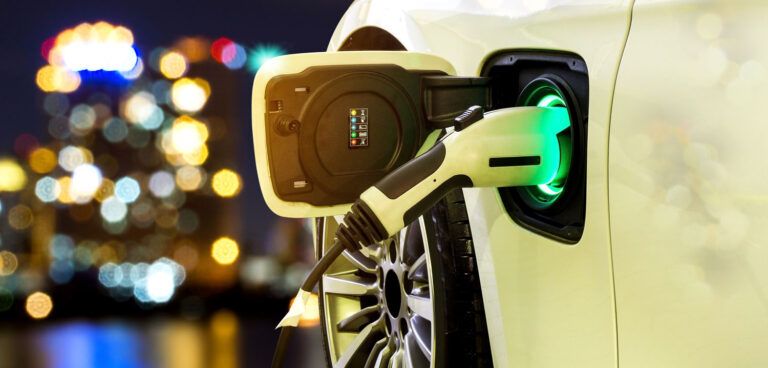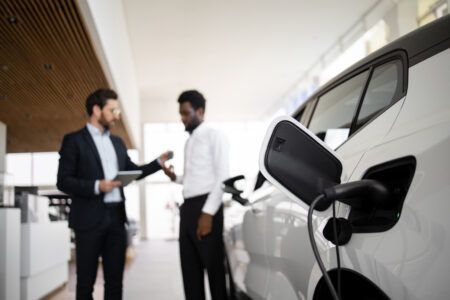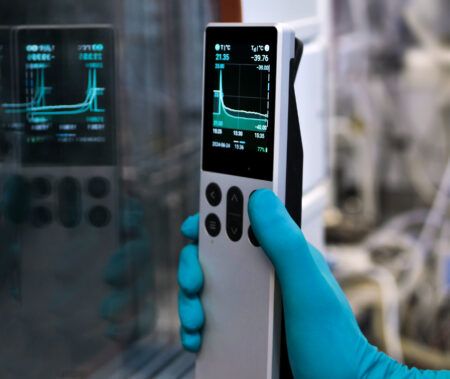I recently visited the Harwell science park, just south of Oxford, UK, where I entered a large building beside the enormous Diamond Light Source particle accelerator.
The room was packed full of scientists. Thankfully I knew one of them, a charming man called David Peilow who I once drove with from London to Edinburgh in a Nissan Leaf. It would be a perfectly reasonable question at this point to ask why a flakey sitcom actor and TV presenter were attending such an august event.
Batteries.
It’s as simple as that. I was attending the official launch of the Faraday Challenge, a £246m government fund recently announced by Greg Clark, UK secretary of state for Business, Energy and Industrial Strategy. This funding is designed to encourage the research and development of new battery technology – mainly for the automotive industry, but also for grid balancing and domestic use. The reason I’m writing about this event, which is mainly of interest to scientists and large companies working in this area, is that the technology they’re developing is, without question, a game-changer.
I always try to keep my enthusiasm for batteries in check – it’s almost as if the answer is too easy. The argument goes something like this. With enough energy storage available to the national grid, we could utilize more renewable energy each year. As anyone from the nuclear or fossil lobby will explain to you with gusto, the problem with renewables is intermittency – they will always highlight the periods when the wind isn’t blowing or the sun isn’t shining. They will shrug and nod knowingly while using terms like ‘base load’ and ‘making energy cheap enough for ordinary hard-working families’.
What they never point out is the regular periods during the year when, with solar in the summer and offshore wind in the winter, renewables produce too much electricity and it throws a spanner in the works. When it is windy or sunny, there are now enough wind turbines and solar panels to produce so much electricity, that balancing the grid, turning off other sources and keeping everything running smoothly, is a real headache for grid controllers.
If we had enough battery storage to cream off anything we don’t need from those renewable supplies and release it when demand was high, we would not only stop burning as much gas (you can forget coal, we’ve pretty much stopped burning that already), we’d also have a more reliable, cheap and stable grid system.
So what’s this got to do with cars? Well, as has already been shown in places like South Australia and California, large-scale grid stabilizing battery systems are not only cheaper and faster to install than gas turbine alternatives, they can also react to grid fluctuations in under a second, making grid stability easier to manage.
But the next step is widely distributed battery storage. Literally millions of batteries spread all over the country with sophisticated controls governing charging and discharging.
Some of these are going to be things like the Tesla Powerwall, or Powervault systems – literally a battery in a box, either inside or outside your house.
But I predict the majority of them will be electric cars using vehicle-to-grid systems, which are just starting to come onto the market – the notion being that if we had, say, five million electric cars on the roads of the UK, with the majority of them connected to vehicle-to-grid charging systems, and each car had an average of 40kWh capacity, the national grid would have around 2,000GWh of capacity to tap into.
Now clearly this system isn’t going to work if you wake up in the morning to find your car battery flat – and that isn’t the idea.
There would be a constant flow into – and occasionally out of – your battery depending on supply and demand in the grid. There would have to be financial benefits to make this proposition attractive. You would effectively be buying electricity when it’s cheap and clean (renewable), and selling it when it’s expensive and dirty (gas, coal, nuclear).
From my very earliest contact with electric cars I’ve always been fascinated by the knock-on disruption this technology allows. Yes, they are more efficient, cheaper to run and maintain, they give a better driving experience, but overall, it’s the rapidly emerging picture that an electric vehicle is a mobile battery storage and computer system, not just a car.
Submitted by Robert Llewellyn, actor, writer and Electric & Hybrid Vehicle columnist





